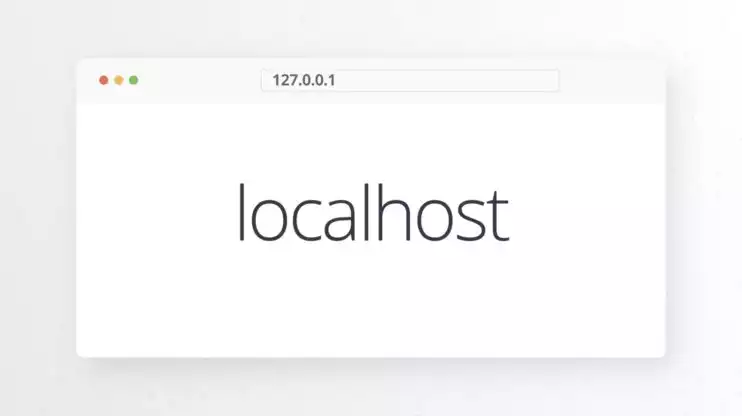What is localhost?
In computer networking, each connected device gets a unique label that identifies the device on the network. This label is known as a hostname. Localhost is the default hostname a computer uses to identify itself and its own internal network. It’s a respective term all computers apply to themselves. No matter what computer you are using, that computer always refers to itself as localhost. In the context of websites and web development, when saying localhost, one usually means local web development environment, when the copy of a website is hosted on the developer’s own machine.

Why use localhost?
While there are some disadvantages, such as the need to run certain network services on your computer or operating system compatibility issues, localhost is a useful tool for development and testing. Localhost works well with most development tools and lends itself well to privacy and portability.
Web development
Since using the local loopback interface prevents web applications from communicating with outside networks, web development projects are isolated from services and data on the internet. Using localhost for development creates a controlled environment where nothing is exposed publicly, but everything remains functional and accessible from the local host computer.
There are various ways to set up a development environment on your computer. A few of the more popular options for setting up a local server include:
- XAMPP – an open-source, cross-platform Apache distribution that includes MariaDB, PHP, and Perl.
- MAMP – a free local server environment for Mac and Windows
- WAMP – a free local development environment for Windows that includes MySQL and PHP
- DesktopServer – a tool for local WordPress development
- Local – another tool for local WordPress development
WordPress developers will often use a local server like MAMP or a local development tool such as Local to build websites, plugins, and web applications in a local environment. Once it’s ready for testing, the local files are copied to a staging environment where any issues are addressed before moving to a live production environment. At 10Web, we can help migrate your website from a localhost environment to our hosting platform for free.
Localhost, staging, and production environments
Even though the lack of internet connectivity can be good for privacy and creating a sandboxed workspace for an individual developer, it doesn’t usually carry a project through to the finish line. Many software and web engineering teams use a combination of local, staging, and production environments in the development workflow.
In this workflow, each engineer works independently on their copy of the project’s files in their own localhost environment. Each local environment must be configured correctly for proper testing and development. As a result, each team member working on the project usually has a similar localhost environment that also closely matches the staging or final production environment. Then, individual team members can merge their local changes with the project’s remote environment. This practice of working locally and copying changes to staging or production environments uses version control systems to prevent developers from making changes that may interfere with the work of other developers.
Version control and localhost development
Normally, a Version Control System (VCS) allows multiple developers to track and merge their changes with a project’s online repository. Even though some locally developed projects don’t require working collaboratively with other developers, a VCS still provides invaluable benefits in a localhost environment. A VCS like Git keeps track of changes and maintains copies of multiple versions of your project. If any problems arise, version control helps roll back to a previous version or track down the point where changes took a turn for the worse.
Many Integrated Development Environments (IDE) include built-in or optional tools for syncing offline and online files. For example, popular IDEs like Eclipse and Visual Studio have features, plugins, or extensions that allow users to work with online version control services like GitHub to sync files between local and remote hosts.





